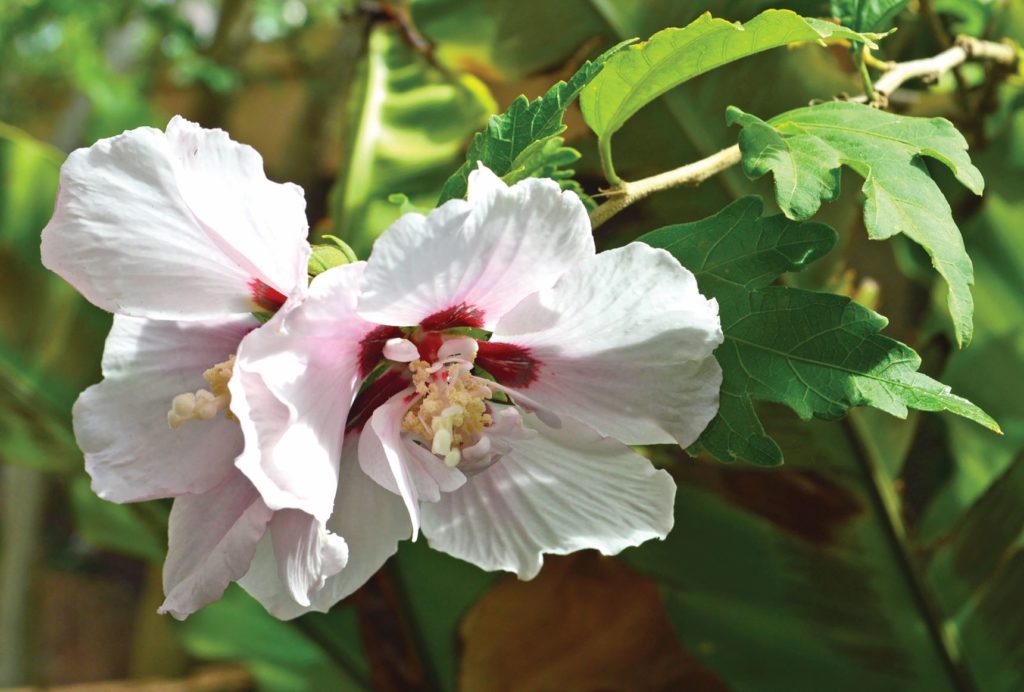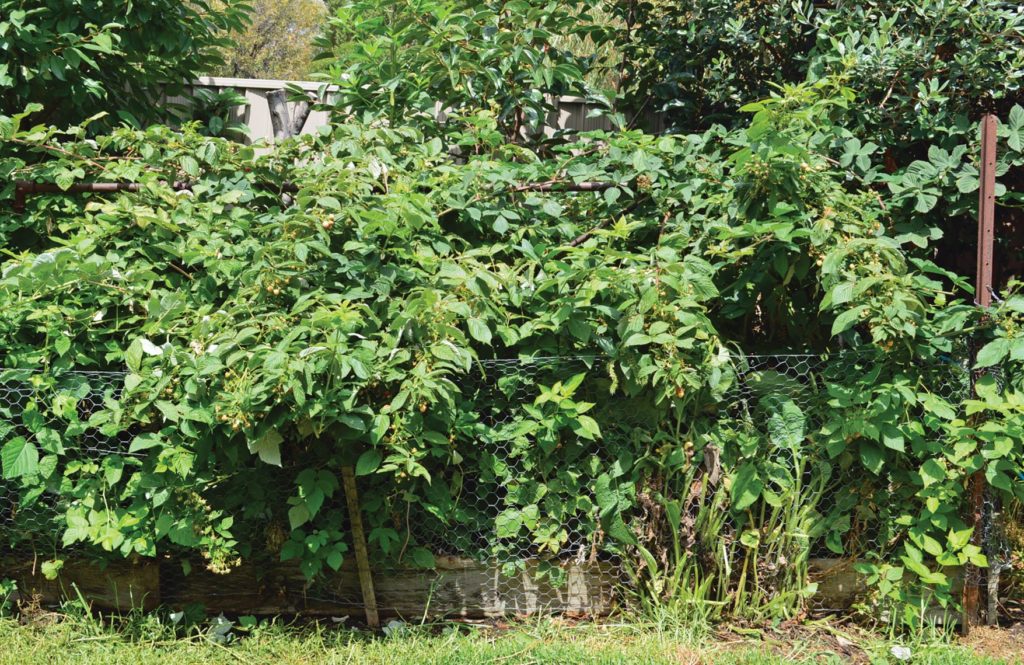In flower: Hibiscus syriacus
Hibiscus syriacus, commonly known as rose of Sharon, is a hardy deciduous shrub with a vase habit. It grows to around 4m and can be kept smaller with pruning. H. syriacus gets covered in trumpet shaped flowers with prominent stamens during summer. They are available in a range of whites, pinks and mauves, and with single or double flowers. Each flower lasts for only one day.

H. syriacus grows in full sun to partly-shaded positions with neutral to slightly alkaline soils. They show potential as a climate change plant due to their being long lived and tolerating drought, heat, humidity, air pollution, cold, and relatively unimproved soils.
H. syriacus is useful for structural plantings, as a stand-alone specimen, and small or solar passive gardens.
In the garden this week
- Prune summer fruiting raspberries while they still have foliage, as it is easier to tell which canes are from last season and need removing (summer varieties fruit on two-year-old canes). Autumn flowering varieties, on the other hand, can have all canes pruned back to ground level once finished fruiting, as they fruit on current season’s canes.
- Dig up, pot up and transplant self-seeded veggie seedlings such as brassicas, parsley, coriander and lettuce. The beauty of these seedlings is that they have germinated at the ideal time and will prosper with minimal help from us.
- Dig up and divide hardy plants that lend themselves well to division, such as clumping grasses and ground covers that form new roots as they spread.
- Keep a close eye out for undesirable plants, aka weeds, as they appreciate the lovely rain we have received equally as much as plants we love. If pressed for time, remove seed heads until you are able to deal with the plants, as even a single plant left to seed can produce thousands of viable offspring.
- Dry, preserve and devour your summer produce, you deserve it!

Talks and workshops
Free talk: Want to know the where, why and how of no-dig gardening? Join local horticulturist and Canberra Daily gardening writer Tracey Bool for a free talk about the tricks and benefits of this worthwhile gardening method. Saturday 14 March 2-3pm at Belconnen Library. To register: go to library.act.gov.au, click on What’s On, choose Belconnen on the Location tab under Browse and find the event.
Canberra City Farm: Over the coming months, Canberra City Farm in Fyshwick will be hosting a series of free workshops for members to learn more about growing their own edibles. For more, including membership, visit ccfarm.org.au
One to read
The Overstory by Richard Powers (Vintage Books 2019, RRP $19.99) is an enchanting book intrinsically linking the lives of nine fascinating characters through their experiences with trees. Whether their interactions are conscious, direct or unexpected, these characters’ tree stories are beautifully written with imagination at their core.
Accomplished author Richard Powers creates a virtual world for readers, enabling them to delve into the secret lives of countless species of trees from all corners of the globe. He writes of the invaluable connection we have with them, thoughtfully reminding us that civilisation as we know it simply wouldn’t exist without them. The Overstory inspires us to see the natural world with a renewed sense of wonder, respect and appreciation.
WITH HORTICULTURIST TRACEY BOOL, traceyboolgardenwriter.com








